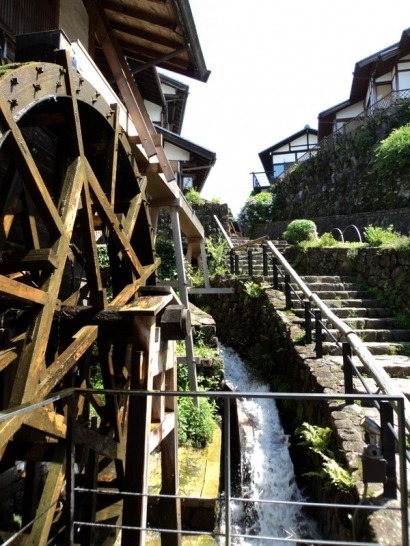
While watching a news program on Japanese TV this summer, I was astounded to see a 20-minute segment on the science of climate change. During a time slot when my American home-town TV station features the hottest Hollywood gossip, the Japanese were being educated on climate change and its long-term effects on society. This got me thinking about how we communicate important issues like climate change and the need for renewable energy, and what lessons we might learn from the Japanese.
Recently, climate change policy in Japan has been made more complex by the Fukushima Daiichi nuclear plant disaster, followed by intense public debate on the wisdom of continued reliance on nuclear power. Many environmentally-minded Japanese want to see their nuclear plants, representing 30 percent of Japan’s electric power generation, permanently shut down. But these same people also desire continued national progress toward reducing greenhouse gas emissions. The dilemma is that if the carbon-free nuclear power plants are replaced with carbon dioxide-emitting fossil fuel plants, as would be the case initially for most of the lost nuclear generating capacity, greenhouse gas emissions would actually go up.
The solution is to emphasize renewable energy and energy efficiency over expanded fossil fuel plant capacity, and this is exactly what many Japanese want to accomplish. To a degree, the government is on board with this approach too, promoting nationwide solar panel and wind power installations and eco-town developments in tsunami reconstruction zones.
Research shows that people are more inclined to accept climate change as a serious international issue when they understand the scientific concepts. By providing educational TV segments on climate change during popular morning news shows, the Japanese people are more inclined to support public policy on renewable energy and energy conservation.
In contrast, the US news media prefers to focus on controversy, often presenting two extreme views (climate changes either exists, or it doesn’t) with little middle ground. This sometimes makes for compelling TV entertainment, but it does little to garner public support for a unified energy policy. Americans end up siding with one extreme view or the other, often selecting the view that validates previously held beliefs. In this context, there is little room for honest public debate.
The reality of human-caused climate change is irrefutable. Yet, climate change skeptics in the US and elsewhere attempt to confuse the public by quoting those few industry-sponsored research studies that run counter to the preponderance of scientific opinion. Conservative politicians like to refer to the issue as “global warming,” a term more open to the antidotal attacks favored by their constituents: If it’s getting warmer, why did it snow so much last winter?
To counter the attacks, liberal climate change activists have been using the language of catastrophe: If measures are not taken immediately to combat climate change, the world is doomed, and the human species will cease to exist. But this tactic may have a backlash effect, as conservatives and liberals alike are turned off by the overly dramatic discourse.
Japan is not immune to climate change hype, particularly these days, as continued reliance on nuclear power is debated and controversy abounds on whether the Fukushima Daiichi power plant company and government officials have held back information about the extent of the disaster. Still, this nation seems to be effectively disseminating information on climate change, and excitement grows daily over the prospects of an expanding renewable energy economy.
The climate change issue is particularly complex and difficult to communicate because we cannot see it or feel it, and the effects are gradual over the long-term. If messaging about climate change and the need for renewable energy is to be successful, it must be clear, concise, and direct, relying on simple analogies wherever possible. Political debate is necessary, and both sides of the issue need to be heard, but there is no substitute for an informed public, armed with the unbiased and unembellished facts.

